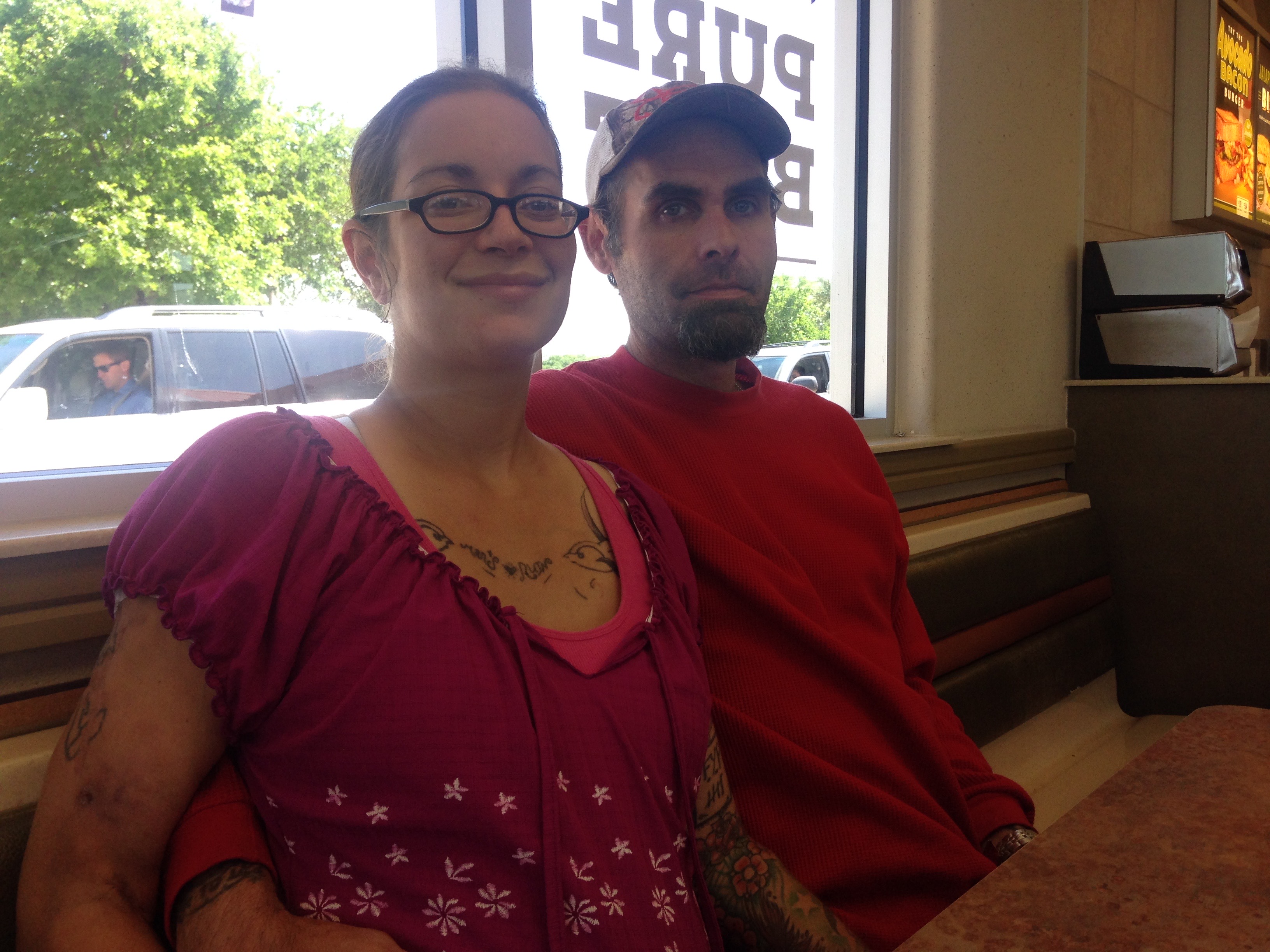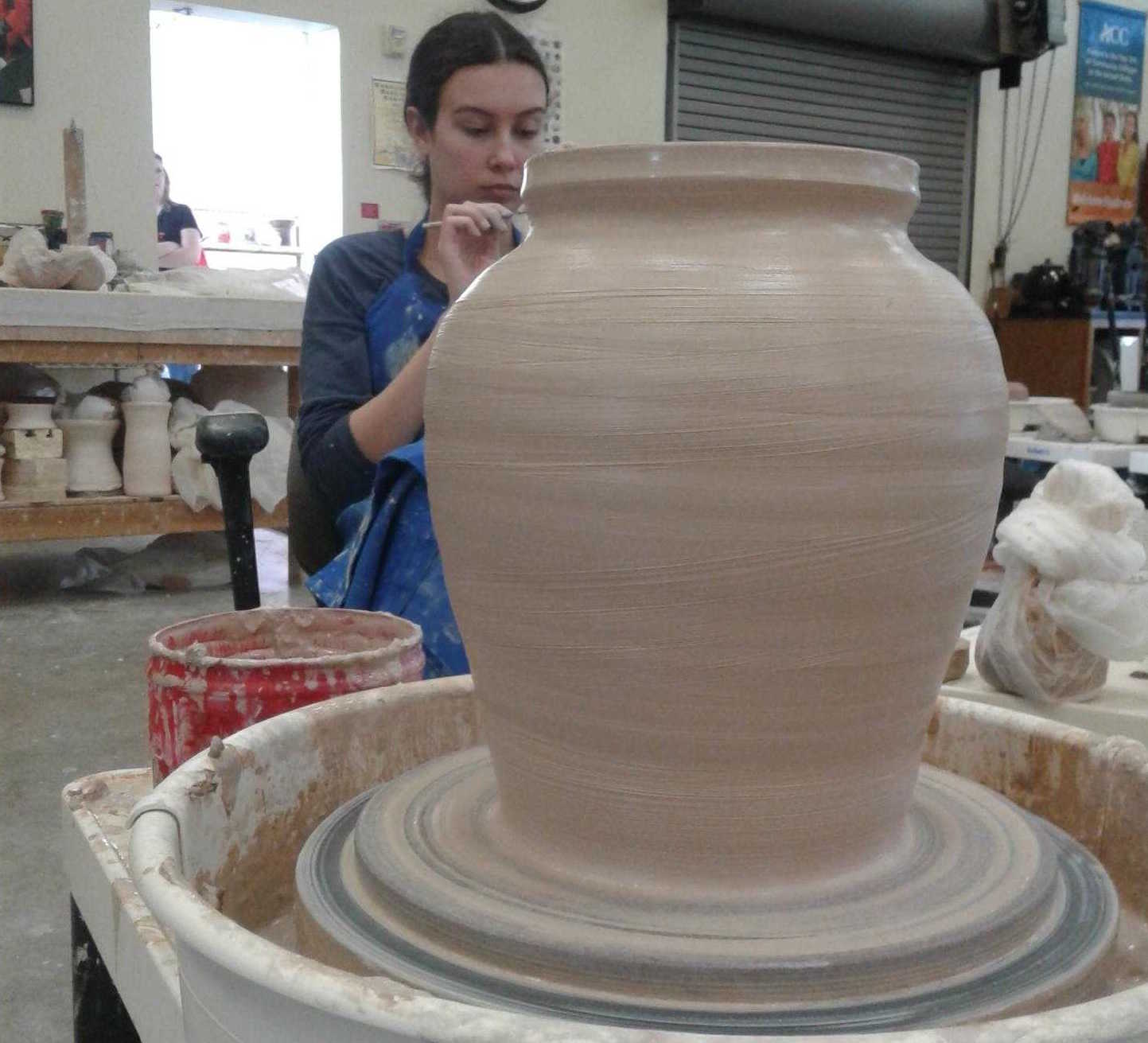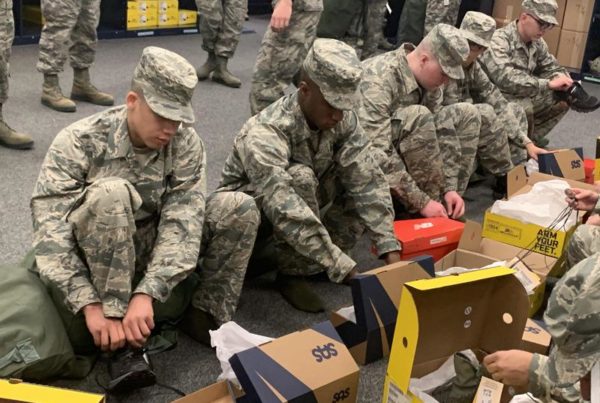Courtney Meeks was 32 years old when she died in February.
Her name may be familiar. Texas Standard’s Joy Diaz followed Meeks’ story several years ago when she was a pregnant mom living with addiction and without a home in Austin.
In life, she had big, brown eyes, dark brown hair, and though she rarely wore makeup, her lips were always pink – that was hard to miss because she was always rubbing them with lip balm.
“Oh, man, gosh, she was, she was so beautiful,” says Meeks’ former partner Randall Rice.
But she was more than a pretty face, and that’s why he fell in love with her. Both were in school when they met: Meeks was studying to be a nurse and Rice was in the police academy in Alvin, Texas. They had really deep conversations, and Rice says she was incredibly smart.
“Never watching her open a book and making straight A’s, versus me where I would spend hours and hours in the tutoring lab to finally get an A, you know?” he says.
Rice also loved Meeks’ creativity and her drawings.
The couple soon formed a little family. But things weren’t perfect: Rice wasn’t aware, at first, that Meeks lived with some mental health issues. But the two were in love and thought they could overcome anything. They had a child together, a baby girl they named Kennedy. But after Kennedy was born, Meeks started to change.
“Her postpartum [depression] was really off the charts, and I knew something was wrong,” Rice says.
At first, Rice thought the depression would go away. But it didn’t, and he says it led to bigger problems.
“I’m not sure if that was the catalyst,” Rice says.
What he means is the catalyst that led to Meeks’ transformation from loving mother – who, among other things, was committed to breastfeeding her little girl for as long as necessary – to being distant, with an almost shadow-like presence. Something wasn’t right with her.
By then, Rice was a cop who had developed an intuition, an inner voice, which told him Meeks had started using drugs.
“I knew that scene,” Rice says. “I know what an addict looks like. I know what a junkie looks like.”
Meeks and Rice were still in a relationship, but he knew what would likely happen next if he didn’t try to get sole custody of Kennedy: foster care would step in and take his child. The choice in front of him was a tough one: stay with a woman he adored and risk losing Kennedy, or turn his back on that woman to protect his little girl. He chose the latter.
Then, Meeks moved to Austin and her addiction began to escalate.
Denson Carman Fontenot was Meeks’ father. Fontenot says he would’ve gladly given his life to save hers. He says he did everything in his power to help Meeks get better, to no avail.
“Keeping her here for a month or two while she detoxes, and you come home and she’s gone,” Fontenot says of the times he tried to help Meeks.
When she’d leave Fontenot’s place in Beaumont, Meeks would often steal to support her addiction.
“Oh, yeah, first time she got caught, you know, after she was fixing to go to prison, that was 14 thousand [dollars] I whooped up on my charge card to pay the lawyer to keep her from going,” Fontenot says. “I had barely got that paid off the charge card, [then] there’s another 12 thousand [dollars] to keep her from going to prison [again]. After that, I said ‘No.’”
For a number of years, Meeks was able to stay employed. But she always worked in hospital settings, and that gave her easy access to medications, which she then combined with street drugs. Her addiction became stronger than her self-will and she finally lost her job at a hospice center in 2008. Shortly after that, she lost her home, then she lost her truck.
And the losses continued. Rice says, she missed out on every milestone in Kennedy’s life.
“First day of school was really tough for Kennedy. I wish that her mom could’ve been there to see her absolutely beautiful child excel,” Rice says.
But Meeks would get the chance to be a mother again. In 2015, she and her new partner, a soft-spoken man named William Welch, became pregnant. At the time, the two were living in a campsite in the woods, when they led Texas Standard’s Joy Diaz on a tour.
Meeks walked in front, but would often tilt back, kind of wobbling, the way pregnant women do when their belly starts to get heavy. The camp was tidy and had a fire pit in the middle. Meeks loved to do the cooking. She had a stack of pans from biggest to smallest, nailed to a tree. She and Joy talked for hours, and with every visit, Meeks shared more, including that Meeks’ health was failing and that she was in constant pain. Meeks also shared that her drug use served many purposes: it dulled the symptoms of her mental health issues, and it also masked the pain from her physical ailments.
Meeks had MRSA, which is a bacterial infection that causes lesions, and is resistant to most antibiotics. Doctors had to constantly cut her arms and legs open to drain the lesions. That left her with scars that made her look like she had survived a fire. She covered the scars with a colorful display of tattoos.
















